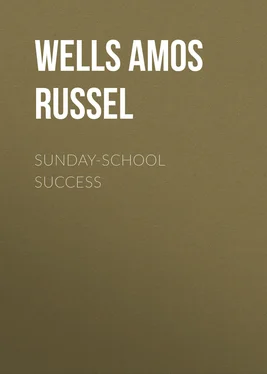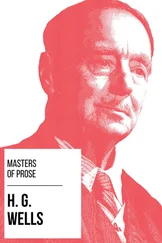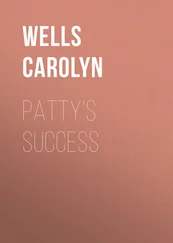Amos Wells - Sunday-School Success
Здесь есть возможность читать онлайн «Amos Wells - Sunday-School Success» — ознакомительный отрывок электронной книги совершенно бесплатно, а после прочтения отрывка купить полную версию. В некоторых случаях можно слушать аудио, скачать через торрент в формате fb2 и присутствует краткое содержание. Жанр: foreign_prose, foreign_religion, Философия, foreign_psychology, foreign_antique, на английском языке. Описание произведения, (предисловие) а так же отзывы посетителей доступны на портале библиотеки ЛибКат.
- Название:Sunday-School Success
- Автор:
- Жанр:
- Год:неизвестен
- ISBN:нет данных
- Рейтинг книги:5 / 5. Голосов: 1
-
Избранное:Добавить в избранное
- Отзывы:
-
Ваша оценка:
- 100
- 1
- 2
- 3
- 4
- 5
Sunday-School Success: краткое содержание, описание и аннотация
Предлагаем к чтению аннотацию, описание, краткое содержание или предисловие (зависит от того, что написал сам автор книги «Sunday-School Success»). Если вы не нашли необходимую информацию о книге — напишите в комментариях, мы постараемся отыскать её.
Sunday-School Success — читать онлайн ознакомительный отрывок
Ниже представлен текст книги, разбитый по страницам. Система сохранения места последней прочитанной страницы, позволяет с удобством читать онлайн бесплатно книгу «Sunday-School Success», без необходимости каждый раз заново искать на чём Вы остановились. Поставьте закладку, и сможете в любой момент перейти на страницу, на которой закончили чтение.
Интервал:
Закладка:
The leader must put himself in the place of all kinds of teachers, and discern their needs. He must head off unseemly and prolonged discussions; he must have sprightliness to keep the meeting taut; he must have zeal to keep the meeting warm; he must have consecration to keep the meeting spiritual.
But the best of leaders may be thwarted by poor following. To be led in a teachers' meeting is an art almost as difficult as to lead. A skilful follower in a teachers' meeting will answer questions briefly. He will not commit the impertinence of giving ten times as much as is asked for from him, thus stealing from the meeting the sprightliness of nine questions and answers, even when all he says is to the point. He will make suggestive answers rather than exhaustive ones. His eager note-book and intelligent listening will be as encouraging as a continuous round of applause. In short, he will be anxious to do anything for the success of the meeting, even to the extent of sitting silent for fifteen minutes. And all leaders will bless him.
Chapter V
A Teacher with a Schedule
The weak point in the preparation most Sunday-school teachers make is their failure to prepare a schedule for their teaching—the order, that is, in which they shall take up and discuss the facts and lessons of the day's Scripture. Probably the majority of teachers begin with verse 1 and go stolidly through to verse 13, or as near it as the superintendent will permit them to get. This is teaching with a shovel, and not with a sieve.
Wise teaching selects, marshals, brings to a focus. It excels haphazard teaching as far as a painting by Rembrandt excels a whitewashed fence. It does not permit ideas to neutralize each other. It has a purpose, clearly and determinedly held in view, and to this purpose it subordinates everything else. It knows that the effectiveness of the lesson depends quite as much on what is left out as on what is put in.
Now the more ideas a teacher has, the greater need has he of a schedule, just as the railroad that runs most trains is in most need of a good time-table. Indeed, the performance of a teacher without a plan bears a strong resemblance to a railway collision. Ideas, illustrations, exhortations, bump into one another front and rear, telescope each other, and form at the end of the hour a disheartening mass of splintered fragments, with here and there a jet of steam or a puff of smoke. If the teacher has no schedule, the scholars on his lesson train will grow confused and get nowhere. Small blame to them!
Imitating Paul, the wise teacher will take for his motto, "This one thing I teach." He will teach as much more as is possible, but first he will make absolutely sure of one thing. My own plan in connection with every lesson is to lay down one principal, and two or three subordinates. It is best to write these down on the margin of the quarterly, in precisely the order in which they are to be taken up. Ask yourself most earnestly, "What is the main lesson this Scripture is to teach my scholars?" Having decided on that, consider your teaching a success, whatever happens, if it has impressed this one truth. Leap to this task as swiftly as may be, even if to reach the chosen point you must pass hastily over the first portion of the lesson.
After driving home this truth, and making sure of it, take up in turn your subordinates. This will require a new view of the lesson story that will compensate for your previous haste. And reserve some time at the end of the lesson for a few parting words on your main truth. Save for this time your most telling illustration, your most ardent pleading. In preparation for this get all questions and difficulties out of the way. Be sure, before you begin, that your watch is with the superintendent's, and do not permit yourself to be caught by the closing bell with your lesson only half way to the terminus.
Some teachers are proud thus to be caught, but they should be ashamed. If their neighbor admits that he got over the lesson with his class, they are filled with amazed pity at his lack of brains. "Why, how could you? There was so much in the lesson that I scarcely made a beginning."
Teachers, it is a disgrace to any workman to leave behind him an improperly finished job; and we are, or should be, just as thorough workmen as any carpenter. Select! One truth a Sunday means fifty-two truths a year, while fifty-two truths a Sunday would not mean one truth a year. Plan! Definite results do not come from haphazard methods. Finish! One goal reached is greater triumph than fifty goals started for. Form a schedule, and carry it out!
Chapter VI
My Lesson Chart
My recipe for a well-prepared lesson is expressed in Captain Cuttle's formula: "Make a note on 't."
I have read the lesson text, and the text before the lesson text and after it. I have read the wisest commentaries I can find, and as many of them as I can find time for. I have "mulled" over the matter for myself a day or two. By this time my brain is thronged with facts and a-tingle with suggestions.
Then, the lesson leaf or some other convenient copy of the lesson text before me, I construct the chart by which to make my Sabbath cruise.
First, one must get out to sea; there is the introduction. How shall I fit this trip in with last Sabbath's voyage, and how shall I get under way?
As I plan my introductory questions, I write at the head of the lesson text some word to represent each question, such as "author?" "time?" "place?" "circumstances?" "purpose?" "outline?"
With the questions concerning the text itself, however, I do no writing; I simply underscore neatly those words or phrases of the text that will hint at the point to be raised. For example, take the verse, "The Lord is my shepherd; I shall not want," and the questions: (1) How was this imagery prompted by David's life? (2) What use did our Lord make of the same simile? (3) What comfort should we get from this thought in the trials and uncertainties of life? (4) How does Christ's shepherding keep us from want? (5) From what kind of want does it keep us? (6) What makes you sure of this? (7) How was all this proved true in David's case?
As each question occurs to me, or is suggested by my reading, I underscore a word that henceforth stands for that question. These words, in the order of the questions, are: (1) "shepherd"; (2) "Lord"; (3) "my"; (4) a curved line from "shepherd" to "I" connecting the two sentences; (5) "want"; (6) "shall not"; (7) "I."
It will sometimes need a little thought to decide just which word will best represent the question, but that very thought will fix the question more firmly in the mind. If more than one question should be attached to one word, make two short underscorings, one beside the other.
When the question contrasts two persons, two expressions, or two events, "railroading" is in order—a line, that is, drawn clear across the printed page, connecting the words which the question connects.
If you have a parallel Bible, or some lesson help that gives the King James and the Revised versions in opposite columns, it is an excellent plan to mark in one version all the points of history, geography, biography, customs, dates, and the like, and in the other the points requiring practical application to heart and life. The latter will obviously go best in the Revised Version. The points indicated by the underscorings in the King James Version may first be considered and got out of the way.
If, however, you must use only the Authorized Version, distinguish in some manner between the two sets of points—the merely explanatory and the hortatory. Use black ink for the first and red ink for the second, or a straight line for the one and a wavy line for the other, or for the first a single and for the second a double underscore.
Читать дальшеИнтервал:
Закладка:
Похожие книги на «Sunday-School Success»
Представляем Вашему вниманию похожие книги на «Sunday-School Success» списком для выбора. Мы отобрали схожую по названию и смыслу литературу в надежде предоставить читателям больше вариантов отыскать новые, интересные, ещё непрочитанные произведения.
Обсуждение, отзывы о книге «Sunday-School Success» и просто собственные мнения читателей. Оставьте ваши комментарии, напишите, что Вы думаете о произведении, его смысле или главных героях. Укажите что конкретно понравилось, а что нет, и почему Вы так считаете.












